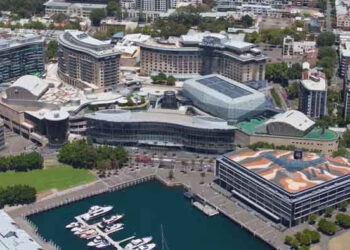This article is part 2 in a series of articles on the Macau Gaming Law Public Consultation Final Report. For links to all articles in the series, see the index at the end of this article.
As discussed in the introduction to this series, the unexpected early release of the Gaming Law Public Consultation Final Report late on 23 December 2021, well before the deadline of March 2022, makes it abundantly clear the Macau government is intent on completing the gaming concession relicensing process before the current concessions expire on 26 June 2022, thus obviating any need for a short or medium-term extension to the concessions.
The initial panic
The release of the Macau government’s consultation document late in the afternoon of 14 September – a document downloaded 9,648 times and distributed by hard copy 1,404 times during the 45 day consultation period – caused quite the stir in the global investment community, leading to an irrational panic selloff of Macau gaming stocks on 15 September and a resultant annihilation of 26% or US$18.4 billion in market capitalization of the Hong Kong listed entities of Macau’s six gaming concessionaires.
Most of this panic was caused by six key issues, each of which will be the subject of separate articles in this series. However, since the release of the consultation document, most of these six issues have been referenced by the Macau Gaming Inspection and Coordination Bureau (DICJ) or the Secretary for Economy and Finance, either tangentially or more substantively, with at least hints dropped that the final outcomes might not be as calamitous as the market initially feared.
There is, however, one glaring exception – the issue raised at item 3.3 of the consultation document, the proposal that concessionaires require government authorization before declaring dividends. An English translation of the proposal is as follows:
“To enable concessionaires to make better use of the benefits obtained from the gaming business in promoting the continuous and diversified development of Macau, it is recommended that when distributing profits, regardless of whether it is paid in the form of cash or equity, concessionaires must meet specific requirements in advance and obtain the prior authorization of the SAR government.”
Of all the consultation document proposals, this “dividend authorization” measure created the most concern, and for very good reason.
Public opinion on the proposal
Public opinion during the consultation period to a greater or lesser extent agreed more than it disagreed with the various consultation document proposals – with one glaring exception: the dividend authorization proposal. The final report states that of 46 opinions expressed on this proposal, only 18 (39%) agreed while 28 (61%) disagreed.
Views in agreement were summarized in the report as follows:
- It ensures some concessionaire profits are used for social needs or for the expansion of activities in Macau
- It prevents concessionaires making payments which weaken their solvency
Views in disagreement were summarized in the report as follows:
- It violates principles of the free market
- Profit distribution is purely a normal business decision and concessionaires should be given relative autonomy in determining dividends
- The SAR government should do a good job of supervision rather than directly intervening in concessionaires’ commercial decisions
- Under the capitalist system, the proposal is contrary to the protection of private property
- It runs counter to the legal system of the Macau SAR
- It increases uncertainty in concessionaire operations
- It will seriously affect investor confidence
- It interferes with the industry business cycle
- It may affect concessionaire investment and ability to reinvest
- In the face of Macau’s already high gaming tax system, it may affect concessionaire enthusiasm in participating in social affairs
- It will weaken the financial resources of concessionaires
- Dividends should not be restricted if concessionaires maintain financial stability
The Macau government should be commended for its transparency in disclosing opinions which disagreed with the proposal.
Other ideas expressed in the report were:
- The government should establish flexible treatment for dividends, given that dividends will influence concessionaire investment in non-gaming and social responsibility projects
- Dividends should only be restricted if concessionaires fail to meet certain requirements
- The government could be responsible for distributing a proportion of profits, with the remainder distributed by concessionaires or retained as a reserve
- Concessionaires should comply with certain financial ratios before declaring dividends
- A proportion of profits can be applied to social needs based on future economic development or non-gaming expansion
- It is necessary to clarify the definition of profit sharing and the way it is calculated
Government response
The government provided an analysis of and response to the public’s views on the dividend authorization proposal, some of which was merely in line with the initial consultation document.
However, some new information was forthcoming. The government response noted, “The opinions collected during the consultation period do not agree with the proposed restriction, and the main reasons for disagreement are that it will interfere in free market operations and may affect the investment intentions of concessionaires.
“The SAR government will consider the concerns and suggestions put forward by various stakeholders, and comprehensively analyze the overall content of the amendment, and evaluate positive and negative impacts … in order to amend the law to protect the relevant interests.”
Did you notice it? The amendment was presented as a fait accompli. The government is saying, “Yes, we hear your objections, but guess what, there’s going to be an amendment to the gaming law on this anyway.”
⬇️ This article continues below the Related Posts ⬇️
The response also stated, “The gambling industry is a special industry.” This might be code for, “Yes, we understand our proposal is against normal free market principles and even contrary to general Macau commercial law, but you have to understand that gaming is ‘special,’ and that’s our justification for doing this.”
The take-away message
But here’s the good news. The key take-away sentence in the government response is this, “Measures to restrict dividends are not designed to prevent reasonable profit distributions from normal business practices, but to ensure that the concessionaires have sufficient financial resources to fulfill their obligations stipulated in the law and under the concession contract.”
This is the answer everybody has been waiting on – if it is to be believed. It clarifies that the policy intention is “not designed to prevent reasonable profit distributions from normal business practices.” They just want the concessionaires to be solvent, to have the cash on hand to do what the government wants them to do. So, if you believe this, and you believe that Macau gaming concessionaires have historically had “sufficient financial resources to fulfill their obligations stipulated in the law and under the concession contract,” then you must believe that the proposal to require government authorization for dividends will not amount to any practical change for the Macau operators.
This is the first time the government has expressed this clarification and should go a long way to calming the market – if the market is astute enough to read between the lines and receive the message.
Our next step on the road to clarity is to wait until the draft amendment is made public, so that we can see the precise language drafted to give effect to the policy intention. And if my suspicion is correct, we might be seeing that as early as next month.
Part 3 of this series will be published on Wednesday 29 December.
MACAU GAMING LAW PUBLIC CONSULTATION FINAL REPORT SERIES
Article Index
Part 1: Introduction
Part 2: Government Authorization of Dividends
Part 3: How many concessionaires?
Part 4: Concession length?






























